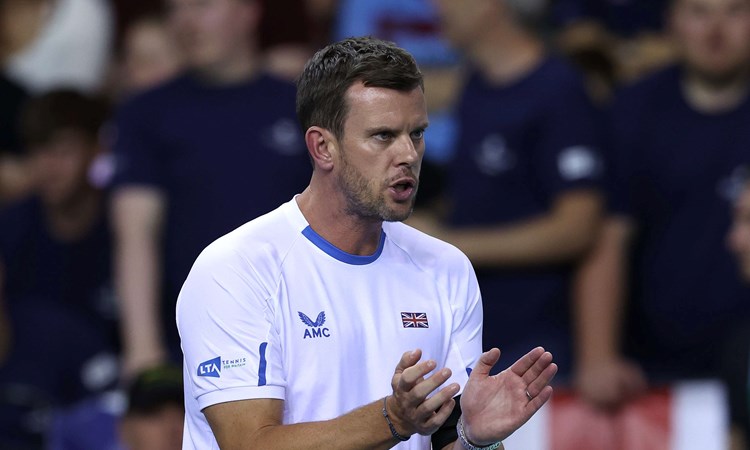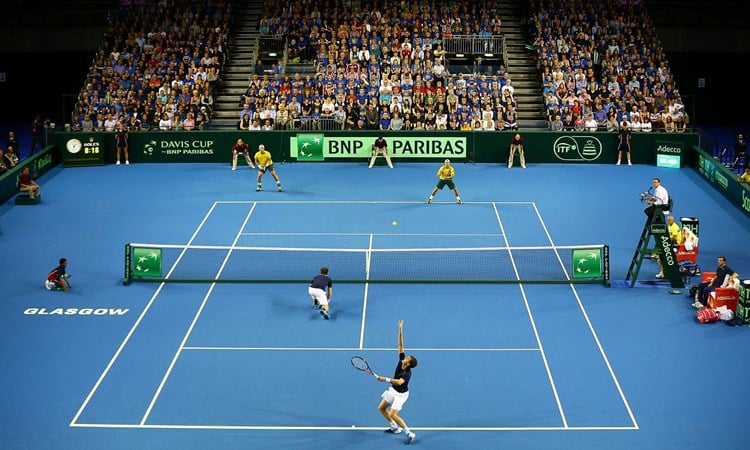
Beginner’s Guide to the Davis Cup 2024
• 5 MINUTE READ
The Davis Cup is unlike any other tournament in men’s tennis. Known as the World Cup of tennis, the tournament was founded in 1900 by Dwight Davis and is the largest annual international team competition in world sport.
With a record-breaking 155 nations entering the Davis Cup this year, preparations have already begun ahead of this year’s Qualifiers and Play-offs hitting the courts in February. With that in mind, we’ve put together a beginner’s guide to all the must-know information surrounding the tournament this year, the teams, how it works and Great Britain’s history at the event.
What is the structure of the 2024 Davis Cup?

The 2024 Davis Cup will kick off on the 1-4 February with qualifiers and play-offs taking place. The field is split into three groups:
Davis Cup Qualifiers: The 12 winners from the qualifiers will advance to the 2024 Davis Cup Finals, where 16 teams will contest the Group Stage in September. The 12 losing teams from the Qualifiers will compete in the World Group I.
World Group I Play Offs: The 12 winning nations from the World Group I Play-offs will progress to 2024 World Group I. The 12 losing nations will contest a World Group II tie in 2024.
World Group II Play Offs: The 12 winning nations in World Group II will progress to 2024 World Group I. The 12 losing nations will compete in their respective Group III Regionals.
The Davis Cup Group stage will then take place in September, with the Finals being scheduled in November where eight countries will battle it out for the trophy.
Key Davis Cup 2024 dates
| 1-4 February | Davis Cup Qualifiers, World Group I Play-offs & World Group II Play-offs |
| 10-15 September | Davis Cup Finals Group Stage |
| 10-15 September | World Group I, World Group II |
| 19-24 November | Davis Cup Final |
| TBC | Group III, Group IV and Group V regional events |
What is the scoring format at the Davis Cup?
Ties in the Davis Cup Qualifiers consist of five matches played over two days: two singles on day one, followed by the doubles and two reverse singles on day two. All matches are the best of three tie-break sets.
Each Davis Cup tie consists of five rubbers – with the winner being the country which wins three or more of the five matches.
The Finals follow a different format – with ties played as a best of three rubbers; two singles and one doubles.
Who won the Davis Cup in 2023?

Italy became world champions for the first time since 1976 after securing a 2-0 victory against Australia in the final. Italy were guided to the trophy after Matteo Arnaldi defeated Alexi Popyrin 7-5, 2-6, 6-4 before Jannik Sinner secured the crown with a 6-3, 6-0 win over Alex de Minaur.
Great Britain reached the Final 8 in Malaga but bowed out in the quarter-finals to Serbia having lost 2-0.
Which teams are competing at the Davis Cup 2024?
We're down to 16 nations who are set to compete at the 2024 Davis Cup Finals Group Stage in Manchester.
- Great Britain
- Australia
- Italy
- Spain
- Argentina
- Belgium
- Brazil
- Canada
- Chile
- Czechia
- Finland
- France
- Germany
- Netherlands
- Slovakia
- USA
The top two teams in each group will advance to the Final 8 in Malaga.
How many players are in each team?
Each nation assembles a team of four or five players, with the country captain deciding which players will compete in the singles and doubles matches.
Great Britain’s history in the Davis Cup

Great Britain are the only nation to have competed in all editions of the tournament since its creation and have lifted the trophy a total of ten times, most recently in 2015.
Where to watch the Davis Cup
Broadcast information for the 2024 Davis Cup Finals Group Stages will be available closer to the event.






